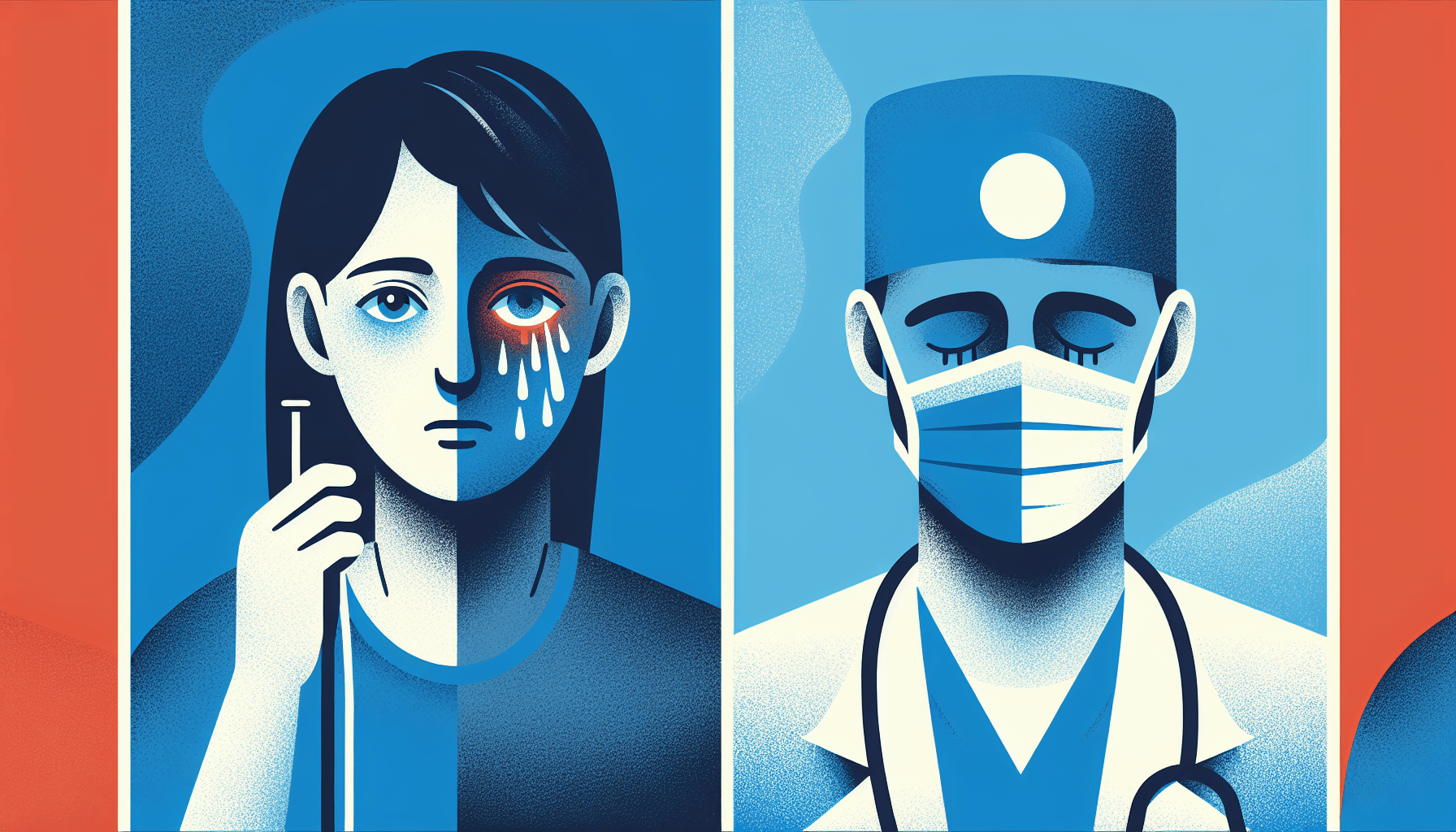A black eye, also known as a "shiner" or "bruised eye", is a common injury that occurs when the skin around the eye is bruised. It usually happens due to a blow to the face, but can also be caused by certain medical conditions. While most black eyes are not serious and will heal on their own within a week or two, some may indicate a more severe injury that requires medical attention.
What Causes a Black Eye?
The most common cause of a black eye is blunt trauma to the face, such as from a punch, fall, or sports injury. This causes blood vessels under the skin to break and leak, resulting in the characteristic black and blue discoloration. Other causes of black eyes include:
Fractures deep inside the skull
Certain medical conditions such as amyloidosis, lupus, and some cancers
Sinus infections
Facial or dental surgery
Symptoms of a Black Eye
The main symptoms of a black eye are bruising and swelling around the eye. The skin may appear red at first, then darken to a deep purple or blue color before fading to green and yellow as it heals. Other symptoms may include:
Pain or tenderness around the eye
Difficulty opening the eye fully
Blurred vision
Bright red discoloration of the white of the eye (subconjunctival hemorrhage)
When to Seek Medical Attention for a Black Eye
While most black eyes are not serious, there are some cases where you should seek medical attention right away. These include:
You have had a head injury or lost consciousness
You have double vision, vision loss, or difficulty moving your eye
There is blood on the surface of your eye or you are bleeding from your nose or ears
You have severe pain or headache that won't go away
Your pupils are different sizes or shapes
If you experience any of these symptoms, go to the emergency room or see an eye doctor (ophthalmologist) promptly.
Treating a Black Eye at Home
Most black eyes can be treated at home with self-care measures. These include:
Applying a cold compress or ice pack to the eye for 15-20 minutes at a time, several times a day, to reduce pain and swelling
Switching to warm compresses after a couple of days to help the bruising heal faster
Taking over-the-counter pain relievers such as acetaminophen or ibuprofen
Keeping your head elevated to reduce swelling
Gently massaging the area around the eye (but avoiding the eye itself)
There is some evidence that vitamin C or the herb arnica may help reduce bruising, but more research is needed. If you need to get rid of a black eye quickly, you could see a dermatologist for a laser treatment.
Preventing Black Eyes
While not all black eyes can be prevented, there are some steps you can take to reduce your risk:
Always wear a seat belt while in a car
Wear protective eyewear such as goggles or a face shield during high-risk activities
Use softer safety balls for sports, especially with younger players
Avoid boxing and other high-impact sports
In conclusion, black eyes are a common injury that usually heal on their own within a few weeks. However, it's important to seek medical attention if you have severe symptoms or the black eye does not improve. By taking steps to prevent eye injuries and properly caring for a black eye, you can help ensure a quick and complete recovery.
For more information on black eyes and other eye injuries, visit:
The Bottom Line
Most cases heal completely within two weeks with proper ice therapy and elevation, but warning signs like vision problems or severe headaches require prompt medical assessment. The key is distinguishing between simple bruising and more serious orbital or head injuries. If you're experiencing concerning symptoms or have questions about your recovery, Doctronic can provide quick guidance.



